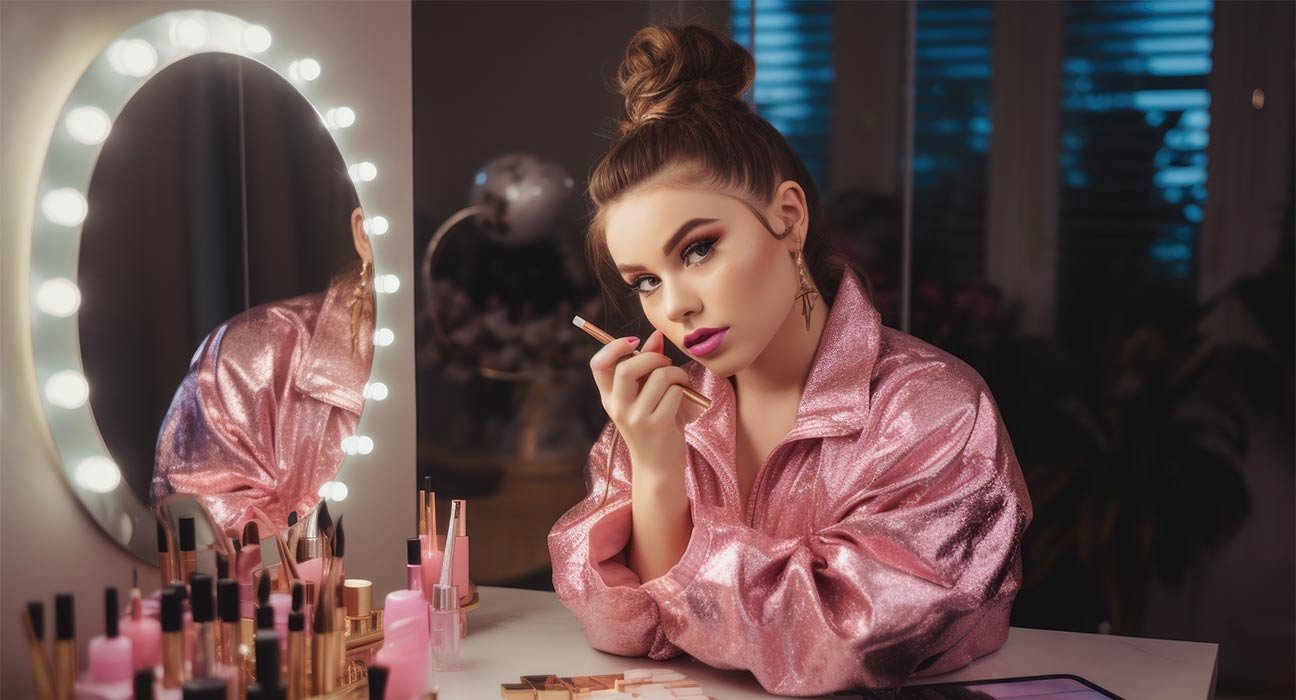Don’t most of us like doing makeup? Makeup has an unmistakable attraction. We may accentuate our features, increase our confidence, and unleash our creativity with the stroke of a brush and a splash of colour. However, for some people, using cosmetics is more than just a way to have fun and express oneself. It turns into an all-consuming obsession—a dependency on makeup. In this article, we explore the symptoms, repercussions, and recovery process of cosmetics addiction, a captivating but dangerous world. Read this article as we reveal the truth and shed light on this frequently ignored problem.
Makeup Addiction
With countless product options, beauty influencers, and the promise of transformation, the world of makeup can be alluring. Applying makeup can lead to feelings of confidence, enjoyment, and even escapism. The distinction between self-expression and self-destruction, however, can become blurred when what starts out as a harmless passion gradually develops into an addiction.
Recognizing Signs
For both individuals and their loved ones, it is critical to recognise the symptoms of cosmetics addiction. It develops into an uncontrollable fixation and goes beyond a simple love of cosmetics. A strong drive to buy and accumulate an excessive amount of makeup, spending an excessive amount of time and money on beauty items, ignoring other obligations and relationships, and feeling upset or anxious when unable to participate in makeup-related activities are a few frequent warning indicators.
Emotional Consequence of Makeup
A deeper emotional struggle can be found hidden beneath the layers of makeup and lipstick. Makeup addiction frequently hides underlying problems including low self-esteem, troubles with body image, anxiety, or despair. Applying more makeup all the time to keep one’s self-worth up can become a vicious cycle due to the brief confidence boost that makeup provides. It turns into a way to deal with uncomfortable feelings or look for approval from others.
Effects and Repercussions:
The effects of a makeup addiction can be profound in many areas of life. Spending too much money on cosmetics might put you in debt and create financial instability. Personal relationships may suffer as a result of people’s concern with beauty, who prioritize their makeup routines over quality time with loved ones. Additionally, the persistent pressure to meet a certain standard of beauty can have a detrimental effect on one’s self-esteem and sustain irrational expectations.
Treatment for Makeup Addiction
1) Addressing Unhealthy Behaviour:
With the correct help and methods, it is possible to recover from a cosmetic addiction. The first step is admitting there is a problem and getting treatment from a professional, such counselling or support groups. Exploring other means of self-expression and learning healthy coping skills might be helpful. It’s crucial to develop self-acceptance and self-love and redefine self-worth beyond physical attributes.
2) Promoting Healthy Beauty Habits:
It is imperative to encourage a healthy connection with cosmetics in order to avoid makeup addiction. Stress the value of inner beauty, self-worth, and many conceptions of attractiveness. Encourage sensible makeup use and moderation, complimenting your natural features rather than going for perfection. The avoidance of cosmetics addiction can also be greatly aided by raising awareness and promoting education about its possible dangers.
3) Therapy:
Getting help from a therapist, like cognitive-behavioral therapy (CBT), can be very helpful in identifying the underlying emotional triggers and fostering the growth of healthier coping strategies. A therapist can assist clients in exploring the underlying roots of their addiction, addressing self-esteem concerns, and creating coping mechanisms for impulses and compulsions.
4) Support Group:
Joining support groups for cosmetics addiction or other comparable concerns can give you a sense of belonging and comprehension. Interacting with people who have had comparable experiences can provide support, inspiration, and insightful information about recovery.
5) Identifying Trigger:
Finding triggers is important because it can help prevent excessive makeup use. It might entail identifying particular feelings, circumstances, or locations that heighten the desire to carry out behaviours associated to cosmetics. Individuals might create methods to avoid or control triggers by recognising them.
6) Self-care routines:
Making self-care a priority is essential for beating a cosmetic addiction. Creating routines that prioritise fostering overall well-being, including appropriate sleep, nutrition, exercise, and relaxation techniques, is required for this. Beyond outward appearances, it also entails establishing self-acceptance and enjoying inherent beauty.
7) Setting limits:
Regaining control and developing a better relationship with cosmetics can be accomplished by setting limits on the usage of makeup. This may entail placing restrictions on new product purchases, cutting down on makeup application time, or avoiding triggers like excessive exposure to media about beauty.
8) Seeking expert advice:
Getting advice on how to approach makeup in a balanced and conscious way can be obtained by speaking with professionals in the beauty business, such as makeup artists or beauty consultants, who are aware about healthy beauty practises.













Leave feedback about this